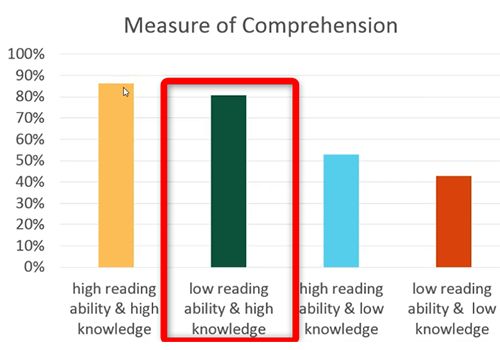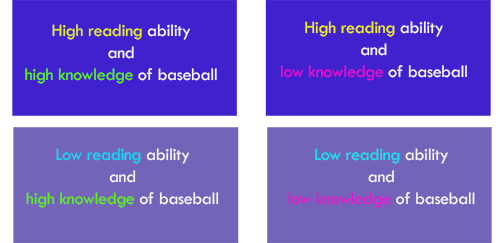In this post, we explain how to improve your GED Reading Comprehension to pass the GED exam quickly and with good scores.
The GED test measures students’ reading comprehension skills not only during the Language Arts test but also via the Social Studies and Science tests.
Pass Your GED This Summer
You Can Get Your Diploma Quickly
Video lessons | Practice tests | Add-ons
You might even hear that if you have strong reading skills, you don’t need to learn anything to pass these 3 subject GED tests.
Is it true? Well, it’s more complex, and a yes or no answer doesn’t apply. Keep reading to untangle this concept and improve your GED test scores.
Our platform offers you free GED online classes to help you get started toward your GED diploma.
Pass the GED this summer
Studying Just 1 Hour a Day.
It doesn’t matter when you left school.
If you are fine with an online course, we suggest you continue your GED prep journey with Onsego GED Prep, a full-scope, award-winning program, and achieve your GED diploma fast.
What is GED Reading Comprehension?
GED Reading comprehension is a reader’s ability to understand the direct and indirect meaning of a text on the GED exam.
There is a common notion that reading more will improve your reading comprehension skills.
So, while the above claim might be true in some cases, scientific research shows that just “reading” is not enough because one of the biggest barriers to reading comprehension is a lack of background knowledge.
This means that students’ background knowledge matters more to their reading comprehension than their reading skills.
For example, students with high reading ability but low knowledge of baseball have trouble understanding a text about baseball.
Similarly, if you have low knowledge of government and civics, you might have trouble answering questions related to these topics on your GED test, even if you are proud of your reading skills.
Research has proven this, most famously in The Baseball Study by Recht & Leslie.
What does it mean for you?
Numerous studies confirmed the findings of Recht and Leslie. Without appropriate background knowledge, we see that even the best-skilled readers are struggling to comprehend a topic.
This means that if you want to improve your reading comprehension skills to pass the GED Science, Social Studies, or Language test, you need to get familiar with these topics.
Don’t skip Language, Social Studies, or Science lessons because someone says these tests require only reading comprehension skills. That’s a recipe for failure.
You might get lucky, or you might not. Failure can lead to a decrease in confidence in yourself, and that’s the main reason why people quit going through all 4 GED tests and not getting a diploma.
Baseball Study and GED Reading Comprehension
This advice is based on research done by researchers Recht and Leslie, which was recently highlighted by Natalie Wexler in her best-selling book: “Knowledge gap.”
In 1988, Recht and Leslie started a research project with the goal of answering this question: how big is the impact of having knowledge on students’ reading comprehension?
The researchers, Lauren Leslie and Donna Recht, asked a representative group of middle and high school students to carefully read a piece of text that described a baseball game and then reenact that situation on a miniature baseball field with wooden figures.
The results were very surprising to the researchers: even the most gifted readers in the group had a hard time re-creating the events described and addressed in the passage.
What was even more important, however, was that the study revealed that students who weren’t very gifted readers (limited reading abilities) but had a lot of baseball knowledge reached scores that were almost at the level of top readers who had a high level of baseball knowledge.

So what does this mean?
First of all, it shows us that knowledge of the topic had a much bigger impact on comprehension than reading ability did. And it tells us that, with sufficient prior knowledge, every student can improve their reading comprehension skills.
It also means that students don’t have one reading level, as we’ve previously thought, but each student has many reading levels depending on the topic that they’re reading about and their knowledge of that topic.
What Helps to Improve GED Reading Comprehension?
-
- Take Lessons to Get Background Knowledge- Find learning materials that are short and to the point and take these lessons. Onsego science courses, for example, feature 8 learning hours. So, in just a few days, you can have a pretty good understanding of science.
- Subject-Specific Vocabulary- Identify common terms in the topic. When you are preparing for the GED Science, make a point to at least find out what is included in the test. Do you know what Punnett Square or molecules are? If not, get familiar with these and many other common terms.
- Practice tests- Taking many practice tests helps you get familiar with both vocabulary and background knowledge.
Follow these tips, and you can rapidly accelerate your reading comprehension skills.
The four groups tested by researchers Recht and Leslie:

To summarize, GED reading comprehension is an important skill, but it requires background knowledge. If you have no prior experience related to Language, Science, and Social Studies, you might not get satisfying results.
It’s wise to spend some time preparing for the GED test to avoid failure and disappointment and improve your GED Reading Comprehension skills. Our free GED practice tests are a great way to get started.
Last Updated on July 16, 2025.